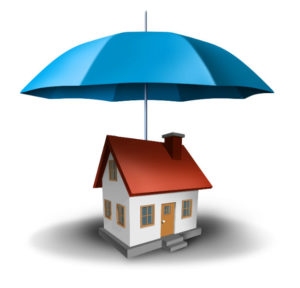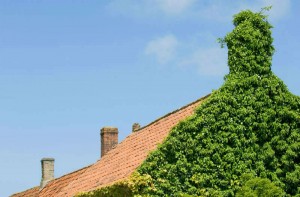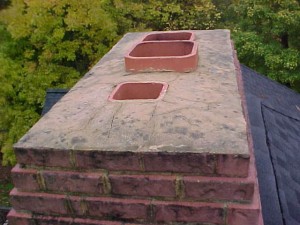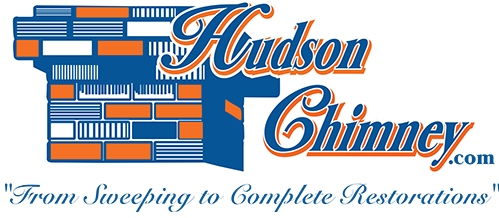by Mark Hudson | Sep 30, 2019 | waterproofing
Your chimney is at risk of serious damage if it hasn’t been waterproofed. Many homeowners think that a well-constructed chimney or professionally-installed system is good to go. Many  homeowners aren’t even aware that chimneys can BE waterproofed—and should be! The truth is that water is such a hazard to a properly-functioning chimney that industry professionals have designed specialized products to protect them.
homeowners aren’t even aware that chimneys can BE waterproofed—and should be! The truth is that water is such a hazard to a properly-functioning chimney that industry professionals have designed specialized products to protect them.
Chimney Water Damage
Your chimney is at risk for water damage year-round. Whether you live on the coast, in the mountains, in a mild climate, or elsewhere, your chimney will be affected by water. The goal of every homeowner and every chimney professional is to keep the water on the OUTSIDE of the chimney. Once it penetrates the system, it can damage it from inside out. What’s more, your chimney leak can lead to water damage and leaks in other areas of the house.
Common water damage includes:
- Rusted dampers, fireplace accessories, connectors, and glass doors
- Deterioration of metal and masonry assemblies
- Deterioration of adjacent structural materials and wall coverings
- Damaged central heating system and flue lining system
- Collapsed hearth support, tilted chimney, collapsed structure
- Chimney settlement
- Spalling masonry and damaged mortar
- Clogged clean-out area
- Water-stains of masonry, walls, floors, and furniture
Winter Water Damage
Water damage is worse in winter months than at any other time. This is because once the water penetrates the masonry through cracks or porous spaces, it freezes and expands. As the water expands, space is made and the masonry is broken apart. When a fire is lit in the system and the chimney warms up, the ice is melted and the water runs further into the damaged masonry. This process, called the freeze/thaw cycle, is repeated month after month, all winter long. The freeze/thaw cycle results in what professionals in the industry call “winter damage”. When your chimney isn’t properly waterproofed, it will take on winter damage that will need to be repaired in the spring to avoid more damage and costly repairs.
Preventable Damage
Like many problems and hazards that can affect your chimney system, water damage is also preventable. You can protect your chimney by hiring a certified professional to maintain it properly. Serving Jacksonville for over 30 years, Hudson Chimney strives to offer valuable services to our customers year after year. By choosing Hudson for all of your chimney needs, you ensure your system is ready for all the seasons, tropical storm season, fire season, and anything that comes your way. Your chimney system is meant to last years—at least as many years as your home or longer. Chimneys and fireplaces add value to your home, but only if they aren’t costing you every year in damages!
We diagnose and repair leaky chimneys, but we also prevent chimney leaks in the first place! Schedule waterproofing services with Hudson Chimney this fall and protect your masonry from tropical storms, mineral-heavy water, humidity, and more. We apply an industrial water-repellant that allows you chimney to breathe and vent properly while also keeping water molecules out. This waterproofing agent doesn’t change the look of your masonry at all, penetrates deep into the masonry, and lasts up to 8 years! If you have never waterproofed your system or have had recent masonry repairs, contact our team today to schedule.
by Mark Hudson | Mar 22, 2018 | Chimney Discoloration
Your chimney is not only used for heat and comfort, but also aesthetics and beauty. Just as a chimney can save homeowner’s money in utilities and add value to the property, it can just as easily decrease the value if it’s neglected or damaged. When your chimney becomes discolored, it becomes obvious there is a problem. Oftentimes, the color can tell you what the problem is.
Stains on the Exterior
White Stains – When water passes through the masonry, it leaves behind minerals like water molecules. If you have white stains on the exterior surfaces of your masonry chimney, your chimney is being affected by water. This is especially common in ocean regions where there are a lot of salts in the air, such as in our service area.
Red Stains – Red stains are common toward the top of the masonry chimney. They are a result of a corroded and rusted chimney cap. A damaged chimney cap may allow water inside, allowing the rusty water to run down the chimney face.
Stains on the Interior
Green/Black Stains – Noticeable stains on the inside of the chimney system are often a result of water damage. Greenish/black stains are a direct result of mold and mildew. The bacteria and spores are likely present in the air and affecting the quality of the air you breathe.
Black/Brown Stains – Caused by soot and creosote, these common stains are mostly found in the firebox. A regularly cleaned and maintained fireplace will not stain. Soot stains may be an indication of a dangerous overproduction of carbon monoxide in the chimney.
Stains on the masonry are not the only kinds of stains that may indicate a dangerous hazard. If you have any type of heat appliance including gas fireplaces or electric heaters, you should be aware of the surrounding space. For instance, if the wall near your heat appliance appears discolored, the heat is affecting it. Most of the building materials that make up your home are flammable, including wood, insulation, wiring, wall coverings, and window treatments. When heat affects the area around the appliance, it still weakens the beams and materials over time, drying them and making them brittle while increasing their fire risk.
No matter what the discoloration or where it occurs, it indicates a problem. If you have noticed a change in appearance, a stain, or otherwise discolored area of the chimney’s masonry or area nearby, you should call a professional for an assessment. Hudson Chimney provides important services such as chimney inspections that can keep your family safe. Remember to schedule your inspection annually, especially if you notice a change or a problem in your system.
Call Hudson Chimney at 904-282-4159 or contact us online!
by Mark Hudson | Mar 26, 2017 | leaky chimney
When it comes to chimneys, leaks are a common problem. Leaks inside the chimney as well as on the outside of the chimney are detrimental to the structure of the home and the chimney. At Hudson Chimney we make it our priority to keep your chimney functioning safely and efficiently. Many chimney sweeps might repair the damage from a leaky chimney year after year, failing to fix the problem at it’s source—the leak. At Hudson Chimney we repair the damage and fix the problem.
The Dangers of a Leaky Chimney
A leaky chimney can cause unseen damage for weeks or months before it’s noticed by a homeowner. That’s why it’s vitally important to schedule regular maintenance like chimney sweeps and annual chimney inspections. It’s at these appointments that a professional will get a look at your chimney.
When it’s caught early you can avoid the many damages and dangers caused by a leaky chimney.
- Rusted and Deteriorated Parts
Water can cause metal and cast iron parts like the damper and the liner to rust and malfunction or crack. A damaged chimney liner can raise fire risk and allow carbon monoxide and other harmful gases into your home.
- Stained, Weakened, and Ruined Structures
Water will ruin your walls, floors, and ceilings. A chimney leak can cause a leak in other parts of the house because the water runs to a lowest point, pools, then forms a leak. You might have a leak several feet or a couple rooms away from the chimney, but an experienced chimney sweep will check the chimney first.
- Stained and Deteriorated Masonry
Water damages and weakens masonry faster than anything else. It stains the exterior and interior of your chimney, the firebox, and hearth. Water stains are unsightly and point to a big problem. If your chimney has been leaking long enough to cause a stain, there is most likely already costly damage to the entire system.
- Increased Fire Risk
Water in the chimney affects the draft that keeps the chimney functioning properly, safely, and efficiently. When the draft is compromised, the air slows and stalls in the chimney, allowing hot gases and sparks to linger in the chimney, igniting creosote and soot that is highly flammable.
- Shortened Chimney Life
When water mingles with soot, it creates a highly corrosive substance that can damage masonry and chimney liner. Moisture disrupts the function of the chimney system and damages it structurally.
Trust In Us
Water causes such extensive damage, that it should be avoided at all costs. Not only can a certified chimney sweep catch a chimney leak in time to save your chimney, but he can also catch it in time to save you in catastrophic costs. Schedule your inspection and let a chimney expert diagnose and cure your leaky chimney today!
by Mark Hudson | Oct 31, 2015 | Chimney Ivy
Although the look of ivy climbing up your masonry chimney can be a beautiful sight, this climbing vine can actually damage its structure. Especially if your home was built before 1930, ivy may cause deterioration of the bricks and mortar of your chimney. Masons did not use mortar mixed with Portland cement to construct homes until after 1930, and the earlier mortar mixes are not nearly as strong and durable, according to Today’s Homeowner. Climbing vines like ivy can easily grow into any existing cracks in the bricks and mortar, and this growth can quickly worsen that damage. Our staff at Hudson Chimney knows that many people love the appearance of climbing vines growing against their chimneys, but we would like to tell you more about why ivy and other similar plants can damage your chimney.

What kind of damage can ivy and other climbing vines do to my chimney?
Certain types of ivy such as English ivy grow very aggressively and will attach themselves into cracks and other eroded areas in the masonry materials of your chimney. Additionally, it can be challenging to even see spalling and erosion damage of the bricks and mortar when your chimney is covered by ivy. One of the biggest problems with ivy growing into your masonry chimney is that if you attempt to pull away any ivy growth to check for cracked or missing bricks, you risk the possibility of pulling down your entire chimney structure.
What can I do if I want to keep the ivy growing on my chimney?
Hudson Chimney can professionally inspect the condition of the masonry materials of your chimney to see if it can support the growth of climbing vines without suffering from further damage. Well-built masonry chimneys typically do not have problems with damage from ivy and other climbing vines. Our expert chimney technicians will know if your chimney was built with mortar containing Portland cement, and we will make any necessary repair recommendations that should be done that will allow you to keep your ivy growing against your chimney.
Does Hudson Chimney have any recommendations of better climbing vines to plant?
We do suggest that you avoid any aggressive vines such as English ivy. Virginia creeper and Boston ivy are great alternatives to consider planting. You can also keep these vines from growing directly against the chimney by installing a support made of wire, lattice, or trellis around your chimney. Non-attaching climbing vines such as roses, wisteria, clematis, and jasmine can easily grow along this type of support without any possible damage done to your chimney. Even better, you can move the support to make chimney inspections and repairs easier.
If your older chimney is covered with ivy, contact us at Hudson Chimney. We can inspect the condition of your chimney to be sure no damage has been done.
by Mark Hudson | Aug 20, 2015 | Chimney Crown Info
Just as you would think from the name, chimney crowns sit at the very top of masonry chimneys to prevent water and animals from getting inside the chimneys. A crucial part of a masonry chimney system, your chimney crown needs to be in good condition to best protect your chimney. If your crown is suffering from hairline cracks, your chimney could be in danger of even more cracking and spalling damage. Luckily for the residents of the Jacksonville, FL area, Hudson Chimney specializes in repairing and building chimney crowns. We would like to tell you more about this important part of your masonry chimney by sharing with you some information from the Chimney Safety Institute of America (CSIA) about chimney crowns.

What exactly does a chimney crown do?
Covering the top of the chimney to seal it from the flue liner to the chimney edge, a chimney crown constructed by Hudson Chimney provides a downward slope to direct water from the flue to the edge of the crown. Without a chimney crown, the entrance to your chimney is wide open and can easily be invaded by water from rain and melted snow and animals such as birds, raccoons, and squirrels. Both water and animals will do a lot of potentially expensive damage to your masonry chimney, which is why it is so important to have a properly built chimney crown on the top of your chimney.
What kind of damage can water and animals do to my chimney?
The CSIA calls water the biggest enemy of masonry chimneys because it erodes away bricks and mortar. Hudson Chimney often sees spalling damage, which is caused when water that has penetrated masonry materials freezes within those materials, it expands. As the water thaws out, it forces the bricks and mortar to crack and break apart. If this type of damage is left untreated, the structure of your chimney is in jeopardy as it could collapse. The greatest type of damage done by animals has more to do with the nesting materials they leave behind in your chimney. Abandoned animal nests in a chimney create dangerous hazards such as fires ignited from the materials and debris and flue blockages that can cause poisonous gases like carbon monoxide to be forced back into your home.
What are the details of a properly built chimney crown?
Constructed from a Portland cement-based mixture, a proper chimney crown should be installed so that it provides an overhang projecting beyond all sides of the chimney by a minimum of two inches. Hudson Chimney additionally ensures that the flue liner tile projects above the crown also by a minimum of two inches.
Concerned about your chimney crown? Contact Hudson Chimney to inspect the condition of your crown and make recommendations for repairs or a rebuild. You can trust us to protect the inside of your chimney with a correctly constructed and installed chimney crown.
 homeowners aren’t even aware that chimneys can BE waterproofed—and should be! The truth is that water is such a hazard to a properly-functioning chimney that industry professionals have designed specialized products to protect them.
homeowners aren’t even aware that chimneys can BE waterproofed—and should be! The truth is that water is such a hazard to a properly-functioning chimney that industry professionals have designed specialized products to protect them.

